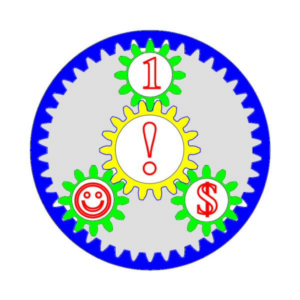Quality of Communication Channel
In tonight’s blog post, guest writer Ryszard Chciuk walks us through the information our customers need and want to know. The quality of the communication channel directly impacts your customer’s purchases, especially as they move through the research phase before buying.
Ron Slee reminded us (see From Paper to Glass) what he had talked perhaps for decades about the three questions that a customer asks when they need to purchase parts from a dealer:
- Have you got it?
- How much is it?
- How long do I have to wait to get it?
These are the same questions customers have when they want to purchase something else or they are looking for any information regarding their equipment.
So, what does your customer do when:
- they are going to replace their old machine with the new one?
- they want to get rid of their old equipment?
- they think about additional attachment to their old machine?
- they are looking for spare parts?
- their machine is down in the middle of nowhere?
- they are looking for the spec sheet of the older machine model?
- they miss somewhere an Operators’ Manual?
- they have to estimate the total quantity of fuel for their new project?
- they immediately need any other kind of information related to his fleet?
Your customer is doing the research.
Mets Kramer in Candid Conversation with Ron Slee (The Digital Dealership) said:
- … of the 85% of all the research the customer does is now done digitally, online, prior to making a phone call.
Seven years ago Acquity Group, part of Accenture Interactive made a survey of 500 procurement officers (B2B) with annual purchasing budgets in excess of $100,000. What did they find?
- Only 12 percent of buyers want to meet in person with a sales representative when determining a purchasing decision and 16 percent want to discuss their purchasing options with a sales representative over the phone.
In the 2014 Acquity Group State of B2B Procurement study they also stated:
- Thirty percent of B2B buyers report they research at least 90 percent of products online before purchasing.
I am afraid a majority of dealerships are not able to interact with their modern customers in a new way. As a born realist, I think nobody in the construction industry is ready for that, despite everybody is having at his disposal proper technology.
Your existing and, even more important, potential customers changed their search behavior, within the last several years, but you have not noticed that. If you are going to neglect that fact, your company goes into dire straits. Be aware that:
- 80% of B2B Buyers Have Switched from Suppliers That are Unable to Align Their Services with Buyer Expectations (from the Accenture report for 2019).
Your company, like most dealerships, from time to time is running sales campaigns. Usually, it is done with the use of an electronic channel. Are you aware, it has no advantages over the 20th-century traditional campaign (with the use of a phone or snail mail)? It is because you present your offer on your static website and it contains extremely exciting form “Please contact us for the price or additional information”. How many times a year do you receive back that form filled in?
You fail because you stubbornly stick to so-called Billboard Marketing. If you want to change that, please read about Digital Marketing. Mets Kramer presented there his view on today’s marketing. Mets differentiates Billboard Marketing from the more 21st-century alike Engagement Marketing.
In fact, it does not matter whether the campaign is run with help of any e-mail platform (newsletters), Google, Facebook, or others. A successful campaign brings your potential customer to your dealership, to have a look at your yard, warehouse, service vans, and workshop. This is the way you can easily initiate customer’s thinking about starting or strengthening friendly relations with your staff. The physical presence of a customer on your street is not necessary. In the 21st century, your website is the main place where this can happen. Does it? Be aware that:
- 83% of buyers use supplier websites for online research (from the Accenture report for 2014).
- only 37 percent of B2B buyers who research a supplier’s website feel it’s the most helpful tool for research (from the Accenture report for 2014).
Of course, your IT provider can change static pages into dynamic ones, they can use new software for generating modern layouts with nicer pictures or even short videos, etc. Everything looks wonderful, but it is only face lifting. The question is if you provide your customers with the information they are online looking for.
Mets Kramer, in the series of articles about Digital Dealership (search for “digital dealership” on the blog), reminded me of my dreams about a “digital” after-sales department. I began to think about it at the end of the 20th century and it never became real. In the next article, I am going to present to you some obstacles which I had to struggle with. It’s a pity, I’m certain that after a quarter of the century later, your road is cobbled with similar or the same problems.


